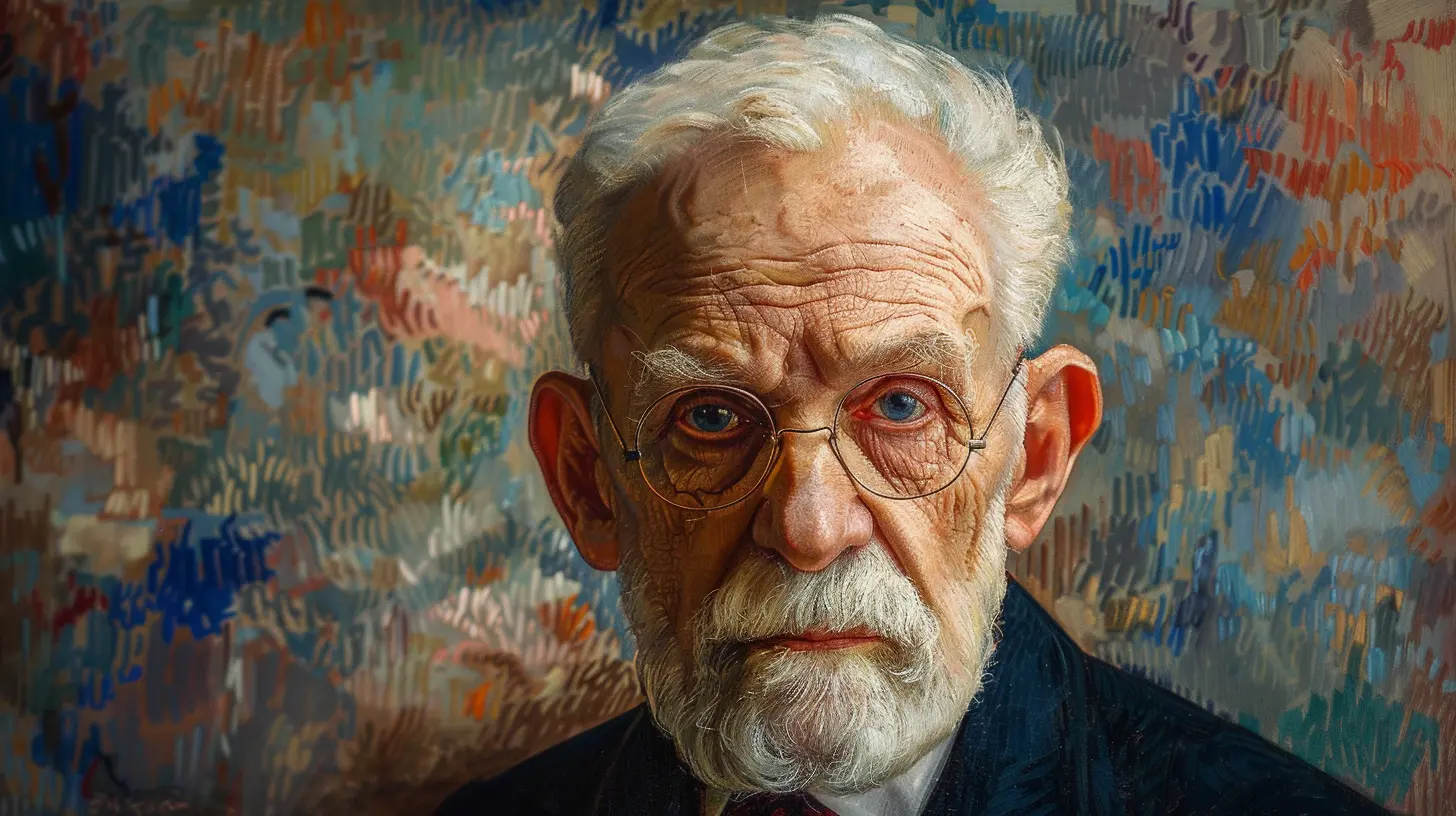Freud’s Legacy in Popular Culture: Myths and Misunderstandings
20 June 2025
When you hear the name Sigmund Freud, what springs to mind first? Probably something about dreams involving your mother, a leather couch, or maybe a guy constantly asking about your childhood, right? Freud’s name is one of the most iconic in psychology—and not just in academic circles. His theories have spilled out into everyday conversations, Hollywood scripts, memes, and even sitcom punchlines. But here’s the thing: what we think we know about Freud is often drenched in myths, pop culture exaggerations, and a whole lotta misunderstandings.
In this article, we’re going to unpack how Freud’s legacy has been twisted, misunderstood, and sometimes even taken way out of context in the world of popular culture. We’ll talk about what he really said, what people think he said, and why that disconnect matters even today.
Who Was Sigmund Freud, Really?
Let’s start from the top. Freud was an Austrian neurologist who eventually became the founding father of psychoanalysis. Long before therapy was something you could joke about with your friends or watch unfold in real-time on reality TV, Freud was trying to figure out why people did the weird, seemingly irrational things they did.He introduced some pretty revolutionary ideas for his time—like the unconscious mind, defense mechanisms, the importance of childhood experiences, and of course, that whole Oedipus complex thing (we’ll get to that later). Love him or hate him, Freud changed the way we think about the mind.
Popular Culture’s Version of Freud: A Caricature of the Man
Alright, so here’s where it gets wild. Freud’s theories weren’t just absorbed into serious psychology textbooks—they got chewed up and spit out by movies, TV shows, pop psychology books, and talk show hosts looking for an easy laugh.You’ve definitely seen it: therapists with German accents asking patients to “tell me about your mother,” characters having Freudian slips in romantic comedies, or villains with twisted childhood trauma blamed entirely on Freudian complexes. It’s like Freud got reduced to three things: cigars, sex, and skeletons in the closet.
But is that who Freud really was? Not quite.
Myth #1: Freud Believed Everything Was About Sex
Let’s just tackle the elephant in the room. The most common pop culture myth about Freud? That everything, and I mean everything, comes down to sex.Now, did Freud talk about sex? A lot? Oh yeah. But not in the over-the-top, soap-opera-way people often suggest. He saw sexuality as something fundamental to human development, especially in childhood. The psychosexual stages—oral, anal, phallic, latency, and genital—were meant to describe psychological growth, not joke material for stand-up comics.
The “everything is about sex” narrative is kind of like saying Shakespeare only wrote love stories. It's a reductionist myth that misses the broader and deeper context of his work.
Myth #2: The Oedipus Complex Means Everyone Wants to Marry Their Mom
Cue the awkward laughter. Yes, Freud introduced the Oedipus complex, and yes, it’s about a child’s unconscious desires involving their parents. But let's clear up the confusion.Freud wasn’t saying that every little boy is literally in love with his mom and wants to kill his dad. He was pointing to a symbolic psychological conflict that he believed happens during development—where a child learns to navigate love, competition, and identity. It’s more about understanding gender roles and authority than anything else.
Yet, in pop culture, the Oedipus complex takes on this exaggerated taboo vibe, often used for shock value or dark humor. Freud’s real point gets lost in translation.
Myth #3: Freud Was Obsessed with Cigars for Symbolic Reasons
You've probably seen the quote attributed to Freud: “Sometimes a cigar is just a cigar.”Funny thing? He may have never actually said that.
People love to poke fun at his supposed obsession with phallic symbols, and the cigar becomes the ultimate metaphor. But Freud was a lifelong cigar smoker simply because he liked it. Not everything was symbolic, and Freud himself reminded us that sometimes, we don’t need to overanalyze every single thing.
So yes, the man loved cigars, but not because he thought he was holding something indecent.
The Couch, the Therapist, and the Pop Culture Cliché
You know that classic image—the patient lying on a couch, gazing at the ceiling while a bearded man scribbles notes from behind them? It’s straight out of a Hollywood script at this point.That setup actually was Freud’s method. He believed lying down helped patients speak more freely without being influenced by the analyst's reactions. This technique became iconic, but it also got turned into a trope: therapy as this cold, distant, almost comical interaction.
Modern therapy isn’t really like that anymore. Today’s psychologists use an array of techniques—CBT, mindfulness-based therapy, EMDR, and more. But thanks to Freud’s enduring image, a lot of people still think therapy is just some guy asking, “How does that make you feel?” over and over again.
Freud’s Real Contributions: Beyond the Pop Culture Filter
Even if he gets misrepresented a lot, Freud did make some real, lasting contributions that echo through psychology today.1. The Unconscious Mind
This is probably Freud’s biggest legacy. The idea that a huge chunk of our behavior is influenced by thoughts, memories, and desires we’re not even aware of? Revolutionary. Even if modern neuroscience approaches it differently, the core idea shaped how we think about behavior and decision-making.2. Defense Mechanisms
Ever caught yourself denying something uncomfortable or projecting your feelings onto someone else? That’s straight from Freud’s playbook. Repression, denial, projection, sublimation—these defense mechanisms are still used to describe human behavior both in clinical practice and casual talk.3. Free Association
Freud’s technique of letting patients talk without censorship became the foundation for many modern therapeutic styles. The idea is simple: trust the process and see where the mind takes you. Not bad, right?Why the Myths Persist
So why do these Freud myths refuse to die? Few reasons:- They’re entertaining. Let’s be real—“Freud thought everyone wanted to sleep with their parent” makes a spicier headline than “Freud explored unconscious familial dynamics in early development.”
- They’re easy to remember. Complex psychological theories don’t make for great soundbites, but over-the-top interpretations sure do.
- They're deeply embedded. Once a theory becomes a meme, it’s hard to undo. Freud's ideas have been around for over a century; by now, pop culture has had plenty of time to twist them.
Should We Still Care About Freud Today?
Great question.Here’s the thing: Freud isn’t always easy to digest, and a lot of his ideas have been heavily critiqued or even debunked by modern science. But understanding Freud helps us understand the roots of psychotherapy, modern psychology, and how we think about the self.
It’s kind of like knowing your family history. You might not agree with what your great-grandpa thought about the world, but learning about him explains how you got where you are today.
Closing Thoughts: Freud Deserves a Fair Shake
Sigmund Freud wasn’t a god, and he definitely wasn’t always right. But he also wasn’t the caricature we see portrayed in movies and memes. His legacy deserves a bit more nuance than just reducing it to sex jokes and mother issues.So next time someone drops a Freud reference at a party or in a heated episode of your favorite Netflix drama, take it with a grain of salt. Chances are, what they’re quoting is more pop than psych.
all images in this post were generated using AI tools
Category:
PsychoanalysisAuthor:

Jenna Richardson
Discussion
rate this article
2 comments
Marley McKale
This article piqued my curiosity about how Freud's theories have permeated modern media. It’s fascinating to consider which aspects are accurately represented versus those that have been distorted. How do these misconceptions affect our understanding of psychology today? I'd love to hear more about examples in film and literature!
October 14, 2025 at 4:15 AM

Jenna Richardson
Thank you for your insightful comment! Freud's theories are often oversimplified in media; for instance, the "Oedipus complex" is frequently misrepresented in films, leading to misunderstandings about human development. These distortions can shape public perceptions of psychology, making it essential to distinguish between Freud's original ideas and their portrayals in popular culture. I'd be happy to share more examples!
Lyanna McNab
In shadows cast by Freud's profound mind, Myths take flight, leaving truth behind. Cultures weave tales, both grand and flawed, In the maze of the psyche, we’re awed.
June 22, 2025 at 3:51 AM

Jenna Richardson
Thank you for your poetic reflection! Freud's influence indeed shapes our understanding of myths and the complexities of the human psyche.


